“In books I have traveled, not only to other worlds, but into my own.”
Anna Quindlen
I have always been fascinated by books.
So much so that as a kid, I was called “book reader” by my friends in school. I’ll admit, not the most creative nickname in the world, but I’m not complaining since it could have been much worse.
I’ve read many books over the years. A handful of them have impacted my life powerfully. And I’ve come back to some of these books over and over to plumb the depths of wisdom as my life changes and I confront new challenges. Most of the posts on this blog are geared toward this very effort.
I’m not a fan of the “New Year, New You” movement that assaults us this time of year. But the ending of one year and the beginning of another creates a natural pause, a threshold if you will, and draws out our more reflective selves.
As I reflect on the year that has been and the year that is to come, I’ve held close to my heart the books that have changed my life.
Today I’m going to share 20 books that have impacted my life in a positive way. Of course, this is not a definitive list as I’ve been impacted by many other books that are not included ( I’ve included a few bonus books as well).
These books have helped me thrive. They have encouraged me when I felt discouraged. They have surprised me with new insights on topics I thought I knew something about.
If 2020 finds you feeling hopeless, discouraged, or burnt out, I hope you find something here that will encourage you, inspire you, and help you keep putting one foot in front of the other.
And who knows, you might even come across a passage that will change your life:
1. A Hidden Wholeness by Parker Palmer
Parker Palmer has become one of my favorite spiritual writers in recent years.
This book is all about the problem the divided life and how we can move toward the undivided life, characterized by integrity and wholeness.
How can we tell if we’re living a divided life? Here are three examples Parker invites the reader to consider:
“We make a living at jobs that violate our basic values, even when survival does not absolutely demand it.
We hide our beliefs from those who disagree with us to avoid conflict, challenge, and change.
We conceal our true identities for fear of being criticized, shunned, or attacked.”
Sounds familiar?
Many of us are living divided lives that leave us feeling alienated and isolated from ourselves and others. This book helped me believe in the possibility that we can create common ground to provide the necessary safe space to help us reconnect with our own souls and the souls of others.
2. Awareness by Anthony DeMello
I received this book as a gift when I was only 19 or 20 years old. I still remember how it blew my mind when I first read it all those years ago and it has continued to impact my life to this day.
Anthony De Mello was a Jesuit priest from India whose work first exposed me to the principles of eastern spirituality, broadening and building upon my traditional Christian ideas. It also challenged many of them.
Why? De Mello helped me see how my “religion” could easily keep me at a safe distance from God. He writes:
“You know there are times like that when the Blessed Sacrament becomes more important than Jesus Christ. When worship becomes more important than love, when the Church becomes more important than life. When God becomes more important than the neighbor. And so it goes on. That’s the danger.”
Bonus: The Way to Love by Anthony De Mello
3. The Untethered Soul by Michael Singer
This book challenged my notion of the “self.” Before reading this book, I thought I had a good idea of who I was in relation to the world.
It built on the work Awareness had already begun in helping me see how most of my suffering comes when I identify myself with things that are not me. That includes the voice in my head.
Singers challenged me to stop identifying myself with my thoughts. This is the key to ending the suffering caused by my self-abuse:
“How would you feel if someone outside really started talking to you the way your inner voice does? How would you relate to a person who opened their mouth to say everything your mental voice says? After a very short period of time, you would tell them to leave and never come back. But when your inner friend continuously speaks up, you don’t ever tell it to leave. No matter how much trouble it causes, you listen.”
4. Breathing Underwater by Richard Rohr
According to Fr. Richard Rohr, the principles of A.A. are not just for recovering alcoholics. It’s for all of us because we’re all addicts.
That’s because we’re all addicted to our own way of thinking about and seeing the world. This passage from the introduction hit me like a ton of bricks:
“We all take our own pattern of thinking as normative, logical, and surely true, even when it does not fully compute. We keep doing the same thing over and over again, even if it is not working for us. That is the self-destructive, even ‘demonic,’ nature of all addiction and of the mind, in particular. We think we are our thinking, and we even take that thinking as utterly ‘true,’ which removes us at least two steps from reality itself. We really are our own worst enemies, and salvation is primarily from ourselves. It seems humans would sooner die than change or admit that they are mistaken.”
Rohr uses each of the steps of A.A. to help us break this powerful and destructive addiction.
5. No Greater Love by Mother Teresa
Mother Teresa, through her life-long work of caring for the poorest of the poor, has become perhaps one of the greatest symbols of love in action.
Mother Teresa, in this book, taught me that even our most insignificant acts can be performed with great love and care for others and that we should always be willing to put aside our harmful pride and ego when seeking to serve God and neighbor. She writes:
“Let us really take the trouble to learn the lesson of holiness from Jesus, whose heart was meek and humble.
If you are humble, nothing will touch you, neither praise nor disgrace, because you know what you are. If you are blamed, you won’t be discouraged; if anyone calls you a saint, you won’t put yourself on a pedestal.”
She knows of what she speaks as Mother Teresa was treated both as a saint and sinner. Her status as sinner has intensified since her death, and despite her canonization, as her life and work came under greater scrutiny.
Praise or blamed, beloved or disgraced, her example of how to love our fellow human beings continues to inspire.
6. The Holy Way by Paula Huston
Modern life has blessed us with many helpful conveniences to help our lives be easier and more enjoyable. But we’ve also had to contend with the dark side of all our progress.
The frenetic pace of life keeps us filled with anxieties as we chase after things that ultimately don’t bring us peace and well-being.
For writer Paula Huston, the inner voice of God led her to discover how monastic living could help slow down her life to something “simpler” and “purer.”
In the Holy Way, she writes openly and honestly about the joys and challenges of contemplative living as she herself is drawn into the lives of monks, mystics, and saints. She writes:
“The Desert Fathers understood that we might battle our demons for many years—chances are good, right up to the moment of death.
Simplification is ultimately a method, not the goal. It is the path, not the endpoint; the field, and not the treasure. It is meant to free us up from all needless anxiety and distraction, to clear away the clutter of ambition and envy and insecurity, so that we might come as close to God as we can in this life.”
7. The Artist’s Way by Julia Cameron
Before I started blogging in 2014, I did not think of myself as a very creative person. Despite the fact that I am a musician as well, I always thought of myself as an interpreter rather than a creator.
Writing allowed me to discover a more creative side, but I must admit, I still struggle to think of myself as a creative person or an artist. I’ve struggled with periods of severe doubt that have threatened to put an end to my writing.
That’s why I’m grateful for the work of Julia Cameron. First and foremost, her work helped me understand that we are all creators, not just traditional “artist” types.
Among her list of “basic principles” are:
“We are, ourselves, creations. And we, in turn, are meant to continue creativity by being creative ourselves.
The refusal to be creative is self-will and is counter to our true nature.”
This book is filled with practical advice and exercises to help you navigate your fears and doubts so you can discover your creative self.
8. Steering by Starlight by Martha Beck
Many of us are haunted by the fear that we’re not living life we’re supposed to be living. We feel like we’re living someone else’s dreams, putting our own authentic selves on the back burner in order to please others and keep the peace.
Martha Beck’s work encouraged me to consider my own natural gifts as I seek to uncover all the conditioning that obscured my life path.
She shares the story of “Gus” who lost his nose in an accident but through the miraculous work of plastic surgeons, had a new one rebuilt using cartilage from one of his ears. However over time, the new nose gradually started to grow back to its original shape and the surgeons would have to go back and reshape his nose.
A little later on she writes:
“You are a natural mystic. All humans are. But given our culture, it’s likely that everytime your being starts to assume the gentle curve of the mystic’s soul, something else—your peers, your parents, your own rational mind—slices into you like the scalpel slicing into Gus’s cartilage, forcing you back to the rational shape you’re “supposed” to have.
9. Learning to Walk in the Dark by Barbara Brown Taylor
My wife and I have been going on night walks the last few years. At first, walking under the cover of darkness provided a welcome refuge.
But over time, we noticed that the path we walked became brighter and brighter. The city began installing brighter LED streetlights. Businesses and residences also did the same. Soon we began to lament the loss of the darkness.
In Learning to Walk in the Dark, Barbara Brown Taylor explores the many ways we try to chase away the darkness both literally and metaphorically.
In it, she shares a truth that many of us know deep down but have a hard time tolerating:
“It’s the inability to bear the dark emotions that causes many of our most significant problems…not the emotions themselves.
The emotions themselves are conduits of pure energy that want something from us: to wake us up, to tell us something we need to know, to break the ice around our hearts, to move us to act.”
We can only access this innate wisdom if we’re willing to walk in the dark.
10. The Return of the Prodigal Son by Henri J.M. Nouwen
The parable of the Prodigal Son (Luke 15:11-32) is one of the best known of Jesus’ parables.
Spiritual master Henri Nouwen uses Rembrandt’s depiction of the prodigal son as his starting point in his deep reflection on this parable.
In reflecting on the father’s role in the drama Jesus tells, he admits:
[alert]“I realize that I am not used to the image of God throwing a big party. It seems to contradict the solemnity and seriousness I have always attached to God. But when I think about the ways in which Jesus describes God’s Kingdom, a joyful banquet is often at its center.” [/alert]
Nouwen honestly and openly expresses a view of God that many Christians struggle with. We have a hard time accepting the idea of grace, unmerited and unconditional. Nouwen invites us in this book to accept God’s “invitation to joy.”
11. No Man Is an Island by Thomas Merton
Open any book by Thomas Merton, and you’re likely to stumble upon a passage that cause you to pause and deeply ponder the spiritual life.
Many of us would consider the material life to be more real than the spiritual life but according to Merton, “the spiritual life is the life of man’s real self.”
In No Man Is an Island, Merton reflects on various aspects of the spiritual life, including love, hope, prayer, and solitude.
In the introduction, he writes:
“We do not exist for ourselves alone, and it is only when we are fully convinced of this fact that we begin to love ourselves properly and thus also love others.”
Merton’s writings will challenge our current notions of the primacy of independence, freedom, and self-sufficiency.
For instance, here’s what he has to say about freedom:
“…I do not find in myself the power to be happy merely by doing what I like. On the contrary, if I do nothing except what pleases my own fancy I will be miserable almost all the time. This would never be so if my will had not been created to use its own freedom in the love of others.”
12. Between the Dark and Daylight by Joan Chittister
For a long time, I’ve been fascinated by the role paradox plays in the spiritual life. In fact, I believe that the very heart of spirituality is paradox.
But paradox is no easy thing to grapple with. It involves the bringing together of realities we find pleasing with realities we find repulsive. It forces to consider possibilities we’ve never thought of or ones that defy logic.
The very title of Sr. Joan Chittester’s book, particularly the subtitle “Embracing the Contradictions of Life,” invites and draws us into the world of paradox. Soon we discover that the world of paradox is not illusory, but actually describes the truth of human existence. It is the path to personal growth, deeper relationships, and ultimately to God.
She writes:
“Growth is the boundary between the darkness of unknowing and the light of new wisdom, new insight, new vision of who and what we ourselves have become. After darkness we are never the same again. We are only stronger, simpler, surer than ever before that there is nothing in life we cannot survive, because though life is bigger than we are, we are meant to grow to our fullest dimensions in it.”
Bonus: The Time is Now: A Call to Uncommon Courage by Joan Chittister
13. The Holy Longing by Ronald Rolheiser
This book was the first to articulate the sense of spiritual restlessness I’ve always experienced and couldn’t quite name.
This captivating passage on the very first page immediately grabbed my attention:
“…there is within us a fundamental dis-ease, an unquenchable fire that renders us incapable, in this life, of ever coming to full peace. This desire lies at the center of our lives, in the marrow of our bones, and in the deep recesses of the soul.”
Rolheiser normalized and universalized the experience of the dis-ease we all feel in our lives and how Christian spirituality seeks to address our deepest longings.
In the chapter called “A Spirituality of Ecclesiology,” he writes this:
“We go to church so as not to be alone—alone in our joys, alone in our sufferings, alone in the everydayness of our lives, alone in the important passages of our lives, alone on our birthdays, alone on a Sunday morning, and alone on Christmas, Easter, New Year’s and Mother’s Day. We go to church for the ointment.”
14. A Return to Love by Marianne Williamson
Yes, that Marianne Williamson, 2020 presidential candidate (she’s still running).
Her best-selling book A Return to Love is based on the powerful lessons she learned in A Course in Miracles, a book which had a profound impact on Williamson and helped her get out of her “personal hell.”
In turn, the book has impacted the lives of millions of spiritual seekers. Many may have been influenced by this book and not even know it. That’s because the most famous quote from this book was once attributed to Nelson Mandela:
“Our deepest fear is not that we are inadequate. Our deepest fear is that we are powerful beyond measure. It is our light, not our darkness that most frightens us. We ask ourselves, ‘Who am I to be brilliant, gorgeous, talented, fabulous?’ Actually, who are you not to be? You are a child of God. Your playing small does not serve the world. There is nothing enlightened about shrinking so that other people won’t feel insecure around you. We are all meant to shine, as children do. We were born to make manifest the glory of God that is within us. It’s not just in some of us; it’s in everyone. And as we let our own light shine, we unconsciously give other people permission to do the same. As we are liberated from our own fear, our presence automatically liberates others.”
This is a quote I’ve read over and over again, especially when I feel small and I’m tempted to give up on difficult pursuits.
Bonus: A Course in Miracles
15. Tuesdays with Morrie by Mitch Albom
Sixteen years after losing touch with his favorite professor, Mitch Albom, a successful but frustrated journalist, is surprised to see, Morrie Schwartz, professor of sociology at Brandeis University, on Nightline with Ted Koppel to talk about about the dying process—his own dying process.
Morrie was slowly dying from ALS and he’d invited the world to walk this journey with him.
Few walked the journey more intimately than Albom who upon reuniting with his old professor, enrolled in his final class on “The Meaning of Life.”
They would meet on Tuesdays in his home where Morrie would expound on his “bite-sized philosophies about living with death’s shadow.” They talk about weighty and consequential subjects such as regrets, family, emotions, aging, forgiveness, and of course, death.
Schwartz was honest about the things he feared most such as “not being able to wipe my ass.” But he eventually learned to accept and even enjoy his growing dependency on others. Albom captures his thoughts in this passage:
“I began to enjoy my dependency. Now I enjoy when they turn me over on my side and rub cream on my behind so I don’t get sores. Or wipe my brow, or they massage my legs. I revel in it. I close my eyes and soak it up. And it seems very familiar to me.”
Remarkable.
16. Broken Open by Elizabeth Lesser
I was drawn to this book during a particularly difficult time in my life. The subtitle, “How Difficult Times Can Help Us Grow” made me feel more hopeful at a time when I was tempted to lose all hope.
What was the point of my difficulty? Could I overcome it or would it overcome me? What were the lessons life was trying to teach me? What did I have to learn them in this way?
Lesser’s writing helped me to own my pain and grief and helped me see that I was not alone. I did not have to hide or pretend everything was ok. This insight alone brought me relief and opened the path to my own healing.
In the chapter called “Open Secret,” Lesser writes:
“The irony of hiding the dark side of our humanness is that our secret is not really a secret at all. How can it be when we’re all safeguarding the very same story? That’s why Rumi calls it an Open Secret. It’s almost a joke—a laughable admission that each one of us has a shadow self, a bumbling, bad-tempered twin…For all of my strengths and gifts, I am also a vulnerable and insecure person, in need of connection and reassurance. This is the secret I try to keep from you, and you from me, and in doing so we do each other a grave disservice.”
She continues:
“Rumi tells us that moment we accept what troubles we’ve been given, the door will open.“
17. The Book of Joy by His Holiness the Dalai Lama and Archbishop Desmond Tutu
I take myself too seriously.
Seriously.
I wasn’t the most pessimistic person to be around but I did tilt heavily to that side growing up. I was very shy, cautious, and sensitive. I was always afraid of offending other people so I barely spoke. Of course, having a debilitating stutter didn’t help matters either.
The one thing I did well was to surround myself with lighthearted people. I was drawn to their general sense of ease and ability to laugh at themselves. They helped bring more joy to my life.
Thanks to the Book of Joy, I’ve added to this list of friends, the Dalai Lama and Desmond Tutu. Their joyful friendship and unrelenting bantering helped me become more lighthearted. What’s amazing is that both men have navigated very difficult times, yet maintained a joyful heart through it all.
Douglas Abrams, the narrative voice in the book, writes of them:
“Their joy is clearly not easy or superficial but one burnished by the fire of adversity, oppression, and struggle. The Dalai Lama and the Archbishop remind us that joy is in fact our birthright and even more fundamental than happiness.”
Both men maintain that joy does not come through the avoidance of suffering, but through the suffering itself. Here’s Archbishop Tutu:
“We are fragile creatures, and it is from this weakness, not despite it, that we discover the possibility of true joy.”
And the Dalai Lama:
“There are going to be frustrations in life. The question is not: How do I escape? It is: How can I use this as something positive?”
Bonus: Between Heaven and Mirth: Why Joy, Humor, and Laughter Are at the Heart of the Spiritual Life by James Martin
18. Big Magic by Elizabeth Gilbert
This book is Gilbert’s masterful reflection on what it takes to be a creative person in the world. You don’t have to be a prodigy, inspirational, or perfect.
All you need is a little courage and a willingness to follow your curiosity. According to Gilbert, the central question when it comes to creative living is:
“Do you have the courage to bring forth the treasures that are hidden within you?”
Gilbert’s exploration of that enemy of creativity called perfection is most instructive:
“We must understand that the drive for perfectionism is a corrosive waste of time, because nothing is ever beyond criticism. No matter how many hours you spend attempting to render something flawless, somebody will always be able to find fault with it.”
So the key to overcoming perfectionism is learning to deal with criticism. Here are her thoughts:
“Recognizing that people’s reactions don’t belong to you is the only sane way to create. If people enjoy what you’ve created, terrific. If people ignore what you’ve created, too bad. If people misunderstand what you’ve created, don’t sweat it. And what if people absolutely hate what you’ve created? What if people attack you with savage vitriol, and insult your intelligence, and malign your motives, and drag your good name through the mud? Just smile sweetly and suggest – as politely as you possibly can – that they go make their own f***ing art. Then stubbornly continue making yours.”
19. The Places That Scare You by Pema Chödrön
Pema Chödrön has a knack for writing books with titles that make you want to run the other way (her latest book is called Welcoming the Unwelcome).
Yet her work has resonated with millions who, thanks to her teachings, are learning to stay with their pain and suffering and ultimately be transformed by it.
In The Places That Scare You, I learned of the practice of tonglen, which in Tibetan means “sending and taking.” Here is her description of the practice:
“We breathe in what is painful and unwanted with the sincere wish that we and others could be free of suffering. As we do so, we drop the story line that goes along with the pain and feel the underlying energy. We completely open our hearts and minds to whatever arises. Exhaling, we send out relief from the pain with the intention that we and others be happy.”
This struck me because it’s the opposite of our concept of breathing. We breath in fresh oxygen and breathe out the toxins created by our bodies. Tonglen considers how on a spiritual level, our breath can work in the opposite way to help us deal with pain and exhale positivity into the world.
20. When Breath Becomes Air by Paul Kalanithi
Paul Kalanthi was a young neurosurgeon near the end of his medical training when he was diagnosed with stage IV lung cancer.
I discovered this book in the midst of embarking on a new career as a hospice chaplain. My work was simple, to help people grapple with the meaning of life as they confronted their death.
Simple, but not easy.
Kalanithi manages to pull it off in this poignant work as he writes:
“Death comes for all of us. For us, for our patients: it is our fate as living, breathing, metabolizing organisms. Most lives are lived with passivity toward death — it’s something that happens to you and those around you. But Jeff and I had trained for years to actively engage with death, to grapple with it, like Jacob with the angel, and, in so doing, to confront the meaning of a life. We had assumed an onerous yoke, that of mortal responsibility. Our patients’ lives and identities may be in our hands, yet death always wins.”
Kalanithi died in 2015, leaving his book unfinished. His wife, Lucy picked up where he left off and wrote a beautiful epilogue to the book. She wrote:
“This book carries the urgency of racing against time, of having important things to say. Paul confronted death, examined it, wrestled with it, accepted it as a physician and patient. He wanted to help people understand death and face mortality. Dying in one’s fourth decade is unusual now, but dying is not.”
Lucy helped drive home the point of Kalanithi’s book. Death is not exotic or sensational. It’s a fact of life we all have to face.
This book gives us the courage we need to face the truth with grace, kindness, peace, and love.
Bonus: No Boundary by Ken Wilber
I have not yet read this book but my wife has read long sections to me. I have been particularly impressed by the way he talks about our fear of death and illusions (such as boundaries and time) we create to stave it off. Wilber writes:
“To accept death is thus to be totally comfortable living without a future, that is, living in the present above time.
But with the rise of the primary boundary, man refused death, and therefore refuses to live without a future, Man refuses, in short, to live without time. He demands time, creates time, lives in time.
Time, the ultimate source of all his problems, thus becomes the imagined source of his salvation. He rushes into time…until his time comes, and he is faced, as he was in the beginning, with the core of this own separate self—and it is death.”
Key Takeaways
Overall, these books have helped see that I am not alone in my daily challenges, pain, and suffering.
I don’t have to feel separate from the lived experiences of others. I don’t have to pretend to have it all together. And I don’t have to scroll enviously through the social media posts of my friends who seem to have it all together.
I can learn to relax, let go, and let God.
The thing that amazes me most about our species is our gritty ability to survive, even thrive in the midst of painful physical, emotional, and spiritual hardships. Each of these books in a way is testament to our collective grittiness.
My prayer for 2020 and beyond is that we can allow ourselves to drop the masks that separate us so that we can touch the humanity in each other.
May we continue to write and share books that celebrate our inextricable connectedness and unbreakable bonds of love. Because regardless of the year, this truth will never change.

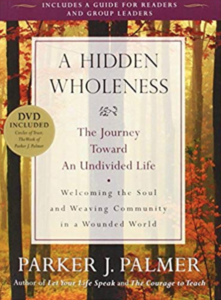
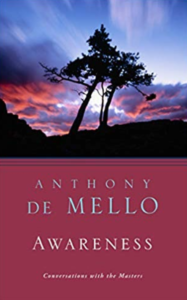
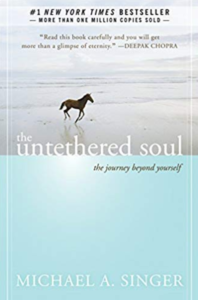
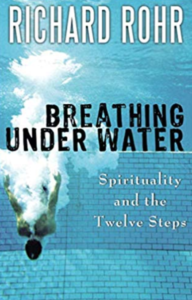
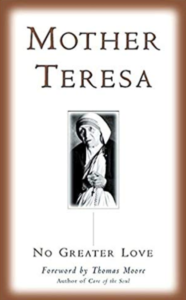
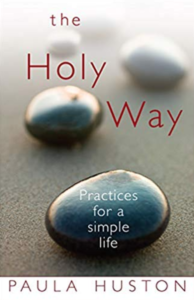
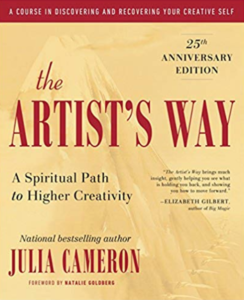
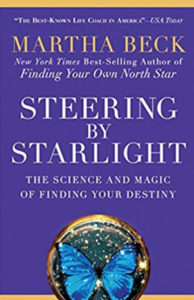
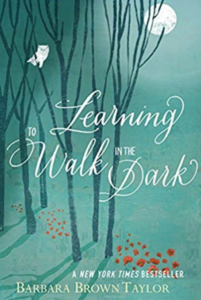
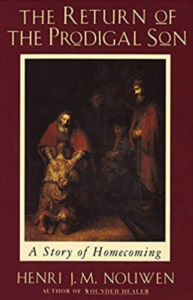
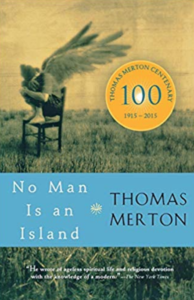
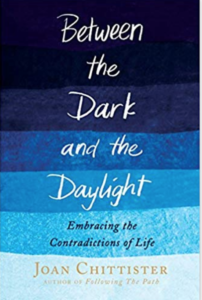
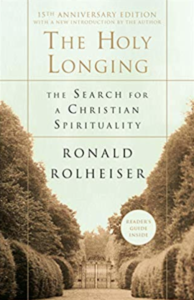
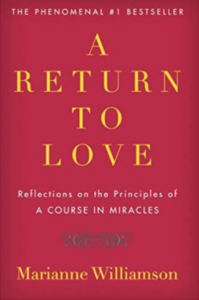
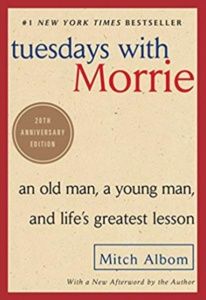
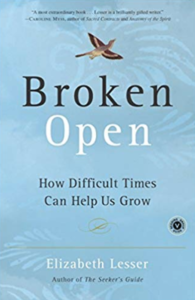
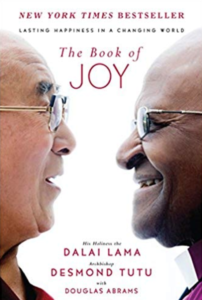
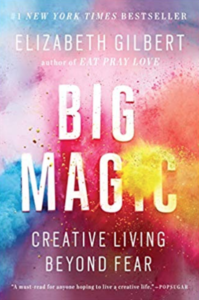
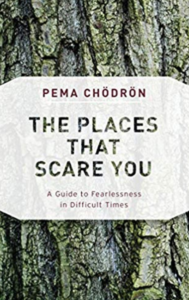
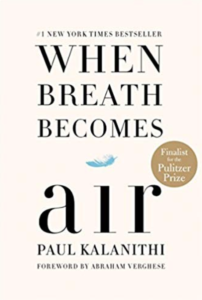
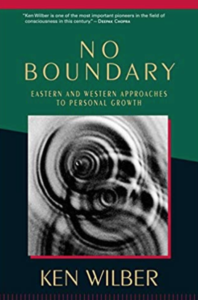
Happy New Year Cylon! What a marvellous list of books!!! Yes, these are ones you can come back to again and again for inspiration and insight! I haven’t read them all, but the ones I have read that you review, you do a wonderful job of summarizing! Well Done!
Wishing you all the best to you and your family for the New Year! And thanks for the link to the threshold post!!
Thank you Kim and thank you for your inspirational post as well…happy to share!
And Happy New Year to you and your as well 🙂
Happy New Year to you and your family!
Thank you for sharing your list with us.
♥
Happy New Year Laurie! You’re welcome 🙂
Happy New Year, Cylon.
Thank you for this list – simply reading the titles and extracts lifts one up. “When breath becomes air,” is the most shocking title I can think of – it describes so much in so few words.
Thank you again.
Happy New Year to you too! Yes, that book is a remarkable work by a remarkable guy.
Wow! Thank you for this list! And, especially for unpacking each of the books. I have read Tuesdays With Morrie. The passage you provided for The Untethered Soul was powerful! It was a real wake up call. The class I’m taking, Basics of Singing, the professor kind of addresses this… People are not going to like our singing (and that’s their problem, right?!), but we won’t be able to confidently sing if we keep telling ourselves how bad we are at singing! (Something like that!) Bottom line, reading the excerpt from The Untethered Soul has reinforced what the professor has been saying and it’s coming at a perfect time, as I prepare to “perform” at piece in a little over a month. Thank you for sharing this list!
Awesome! A wise professor! All the best with your performance…you can do this!